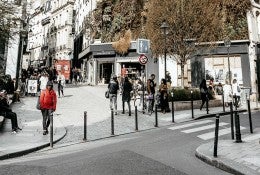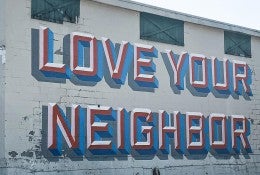How Houston can become a 15-minute city
What does cancer treatment have to do with fighting climate change, the COVID-19 pandemic and neighborhood-level urban planning? Taking preventive steps today can literally save us all tomorrow.

How Houston can become a 15-minute city
What does cancer treatment have to do with fighting climate change, the COVID-19 pandemic and neighborhood-level urban planning? Taking preventive steps today can literally save us all tomorrow.

Is Houston still one of the most generous cities in the US?
With a rich history as a philanthropic city, Houston has a reputation as one of the nation’s most charitable metros. However, a recent ranking doesn’t find the city to be quite so generous.

Unflashy but effective ways to slow traffic and save lives
Pedestrians and bicyclists accounted for 38% of all roadway deaths in Houston in 2019 — a 3% increase from 2018. Overall, 647 people were killed in fatal crashes in the Houston area in 2019, according to NHTSA data released in December. Prioritizing speed on local roads is the dangerous status quo in the U.S., but many cities are taking action to try and make safety the priority.

How will COVID-19 alter today’s house of tomorrow?
In 2020, many American companies and their employees embraced working from home, and polls show the majority of workers want to continue the arrangement after the pandemic is over. With so many spending much more time at home, what design trends will benefit workers, households and individuals the most?

A data-driven approach to combating food insecurity worsened by COVID-19
In August, Urban Harvest launched its mobile market to bring healthy and affordable food options to underserved areas with limited access to fresh fruits and vegetables. The nonprofit collaborated with the Kinder Institute’s Houston Community Data Connections to create a data-based decision support tool that helps ensure the mobile market is being dispatched to areas of Houston where residents need it the most.

Rice University
Kraft Hall
6100 Main Street, Suite 305
Houston, TX 77005-1892